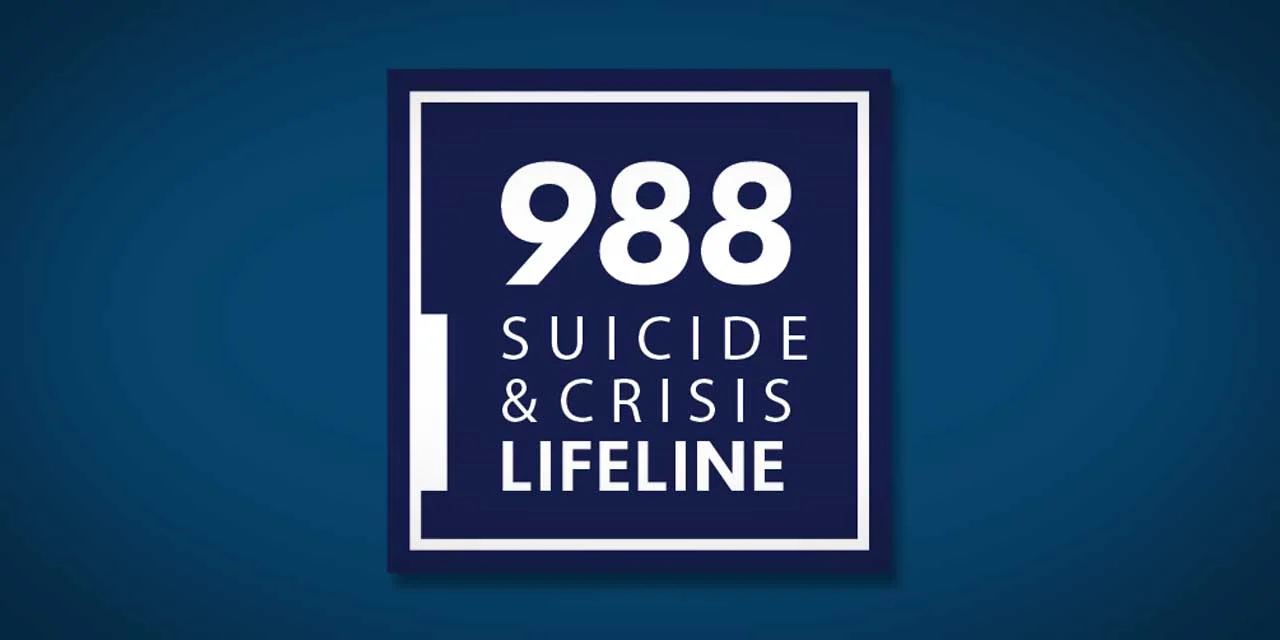Young Adults in College During School Breaks
Young adults attending college will have different experiences during school breaks than high school and younger students. For many, this is the first time they’ve been back home since they went to school. For others, they might not be able to afford to go home, so they might feel lonely and isolated if they don’t have anyone else around with whom to spend breaks. Whatever your experience is, we have plenty of suggestions to help you get the most out of your school breaks to support your mental health.

Find local support
Connect with a NAMI chapter near you
Select your state to find a local NAMI affiliate. The page will redirect to the affiliate's page when a state is selected.
In need of help or support?
NAMI has a helpline specifically for teens and young adults. Get immediate support by calling, texting or chatting online.
Addressing the Feeling of Isolation
Isolation can occur for both those who are stuck in their college town and those who go back home for their break. You might feel like you want to stay in and sleep to avoid the feeling of loneliness, but it’s important to recognize when you need to reach out for support. Thanks to technology, there are many ways to stay connected even when you are physically cities, states and, in some cases, countries apart.
Ways to stay connected
Make time for video chats to catch up with your friends. Pick a time and day that you will all make time for the call.
- Attend virtual hangouts where you can all do an activity together!
- Playing video games.
- Painting.
- Drawing.
- Playing virtual card games, like Say It Out Loud!
Can’t agree on one option? Do your own individual activities and enjoy having the company virtually.
Want to try something old school? You can send each other pen pal letters talking about your week and include fun stickers or confetti to make it unique to you and your friend. Alternatively, you also can make a digital letter through online programs and email the finished product to your friend.
Want to try and build your network and community? Try engaging in local events and volunteering at local organizations.
If you feel like you need additional support or feel like you can’t talk to your friends or family about how you’re feeling, you can reach out to the NAMI HelpLines.

Say It Out Loud!
Created by young people for young people, NAMI Say It Out Loud is a free online card game that will bring you closer to your friends through conversation prompts about life, relationships, and mental health.
NAMI HelpLine
Text NAMI to 62640, Monday–Friday, 10:00 am to 10:00 p.m ET.
Teen and Young Adult HelpLine
Text “Friend” to 62640, Monday–Friday, 10:00 am to 10:00 p.m ET.
Establishing Boundaries and Expectations
Being home on break could bring on responsibilities that you did not have to think about when you were in school. Your parents might ask you to be a lot more involved in supporting your family through more chores, taking care of your younger siblings, or helping out with a family business. It’s important to talk with your family to establish boundaries and expectations. This might be easier said than done, as each family has its own cultural perspectives on expectations in the home. If you feel safe to have the conversation, below are some tips on how to facilitate it.
If your parents are new to understanding the importance of boundaries, you can walk them through our Boundaries info sheet. You can also talk to them about what they feel their boundaries are and make it more of an open conversation. You can discuss things like:
- What does your parent feel is necessary to support their stress?
- What do you feel will support you in your mental health in preparing for the next semester?
- What does making time for you both look like?
- What does being supported look like to both of you?
More examples are available in the Teens section.
Once you establish what boundaries are important to you, you can then think about flexibility and how you will work together to build your expectations for what your time on break from school looks like. If you need additional support and have access to a therapist, this may be a topic you can discuss with them to prepare what you’d like to say or to work through differing expectations.
Self-Care When Seeing Family

School breaks include holidays when families get together. For some, it can be nerve-wracking to see certain family members for various reasons. Not everyone can feel safe to voice their concerns or to avoid seeing those family members. Here is a list of potential strategies to support yourself:
- Make plans to leave early. If possible, arrange a time for you to leave the gathering for another “engagement.” You have a party to attend, must visit a friend from out of town, or whatever reason you think would be reasonable to leave early.
- Can’t leave early? Talk to a trusted family member, or bring a friend who will support you and have your back. You can come up with code words to help you get out of uncomfortable situations or to help de-escalate a potential activation.
- Take a break by going to the bathroom and resetting. If needed, try some breathing exercises or calling a friend.
- Avoid feeding into topics that you know will escalate due to different views and opinions. Think of some ways to redirect the conversation to something less controversial if possible. Talk with another trusted family member to help you come up with some strategies.
- If possible, try to keep your interactions limited to avoid activation or feeling uncomfortable. You can try to redirect by mentioning you need to talk with another family member about something.
After stressful encounters, plan some time for yourself to help you feel better or debrief.
- Get yourself a small treat.
- Schedule a call with a friend.
- Schedule your next therapist appointment to be the day after your interaction.
Additionally, if you need immediate support, you can access helplines, which are staffed with live trained people you can chat with.
HelpLines

NAMI HelpLine
Mental health support available Monday through Friday, 10 a.m. to 10 p.m. ET

Trevor Project
LGBTQ+ hotline available 24 hours, 7 days a week.

Crisis Text Line
Mental health support available 24 hours, 7 days a week.

Love is Respect Hotline
Domestic violence support available 24 hours, 7 days a week.

988 Suicide and Crisis Lifeline
If you or someone you know is struggling or in a crisis, help is available. Call, text or chat the 988 Suicide & Crisis Lifeline to reach a trained crisis counselor who can provide support in a mental health, substance use or suicide crisis. To learn how 988 can help in a crisis, read the 988 FAQs.
Prioritize Yourself
No matter the reason that a family member causes stress, anxiety or even fear, it is important to prioritize yourself and your needs. Not everyone’s family will understand the need to not be around certain family members, but now that you are becoming/are an adult, you can work toward creating boundaries that support your mental health.
Supporting Your Mental Wellness
During the school year, you might experience burnout and fall off of practices that support your mental health. Now that you don’t have to worry about exams and busy class schedules, you can pick up some good habits that you can try to carry with you into the next school semester! If you’re interested in picking up some new habits, consider trying some of these activities.

Mornings
Some people do better in the mornings. If this isn’t you, feel free to try these practices whenever you wake up. Find small things that make you feel energized and ready for the day! Try to mix it up and find what is most sustainable for you. Taking as little as 30 minutes to dedicate to yourself can make a major change.
- Make plans to leave early. If possible, arrange a time for you to leave the gathering for another “engagement.” You have a party to attend, must visit a friend from out of town, or whatever reason you think would be reasonable to leave early.
- Can’t leave early? Talk to a trusted family member, or bring a friend who will support you and have your back. You can come up with code words to help you get out of uncomfortable situations or to help de-escalate a potential activation.
- Take a break by going to the bathroom and resetting. If needed, try some breathing exercises or calling a friend.
- Avoid feeding into topics that you know will escalate due to different views and opinions. Think of some ways to redirect the conversation to something less controversial if possible. Talk with another trusted family member to help you come up with some strategies.
- If possible, try to keep your interactions limited to avoid activation or feeling uncomfortable. You can try to redirect by mentioning you need to talk with another family member about something.
Evenings
Some people do better in the evenings. Evenings can be a great opportunity to slow down and focus on relaxing after a busy or stressful day. Try to take a minimum of 30 minutes to complete an evening wellness routine. If possible, avoid screens closer to when you plan to sleep.
- Meditate.
- Journal about your day and set intentions for the next day.
- Stretch or practice yoga.
- Read a relaxing book to help you settle in for the night.
- Draw, sketch, or color.
- Play calming music to set the vibe.
- Write down anything you have racing through your mind that needs to be done in the morning/next day.
- Light a candle to create a calming atmosphere.
- Practice gratitude during your skin care routine or while brushing your teeth.
Make time to move your body during the day.
Examples of approachable movement include:
- Yoga.
- Stretching.
- Walking.
Need a little More? Research more information about workouts that interest you and see whether they will work for where you are physically, such as:
- Pilates.
- Weightlifting.
- HIIT (high-intensity interval training).
- Cycling.
- Running.
- Swimming.
Make time for things that bring you joy
Such as:
- Reading.
- Catching up with friends.
- Painting, drawing, writing, etc.
- Watching a series or movie you haven’t had time to watch.
- Playing video games.
- Hiking.
Trips
Taking a trip with friends and/or family? This can be both a fun and stressful time depending on many different factors. Here are some tips to help you manage your mental health while traveling.

Plan Ahead
Think about what you will be doing to get to your destination and what you will most likely be experiencing. From there, you can think about coping mechanisms for the parts you feel most nervous about.
Pack a personal bag with things that help you stay occupied and relaxed, such as:
- Books for reading, coloring, or activities.
- A sketchbook and drawing implements.
- Downloaded audiobooks, a collection of podcast episodes, or music playlists.
- Fidget toys
- Portable gaming console.
- A deck of cards to play with family.
Make a list of exercises you can do in the moment to help you de-escalate the feelings of being overwhelmed or anxious, such as:
- Focus on breathing: Guided deep breathing with Soul Cole the Brand.
- Pull out a fidget toy to redirect your focus.
- Eat sour candy.
- Grounding exercises.
- Portable gaming console.
- Write out your thoughts in your phone notes or a journal.
Taking a Road Trip?
Before the drive:
- Look at the directions to your goal location, and find potential stopping places for food, bathrooms and emergencies. Try to find stops within a maximum of one hour between each other. You can always pass them if you don’t need them, but if you do need them, they can be a big help. These might include gas stations, convenience stores, restaurants, rest stops, etc.
- Similar to plane travel, pack a small backpack with things to do while in the car. If you have a tablet or screens in the car, download some movies.
- Have multiple people in the car who can drive? Make a driving schedule so you can avoid having a tired driver.
- Make a group playlist!
- Plan when you will check in with family to let them know where you are.
- Prepare the car for the trip so you don’t need to worry about its reliability. Know when it has had its last oil change, and make sure the tires are properly inflated. Have a plan for whom to call in case of an accident, and know where you will keep your registration and proof of insurance.
- If the car is not yours, make sure you know where the controls are for lights and windshield wipers. Take the car on a practice drive if you can, preferably someplace fun or relaxing.
Day of the drive:
- Make sure everyone knows where the stopping areas are and that everyone is on the same page about the driving schedule.
- Double-check that you have any items you need to support your travel anxiety.
- Check in with the driver and others in the car in case they need anything (make stops, hydrate, eat, etc.)
However you decide to spend your school break, we hope that you consider some of these suggestions to find what works best to support your mental health.
We want to hear your story
Tell us how mental illness has affected your life. What has been challenging? What has been helpful to you?